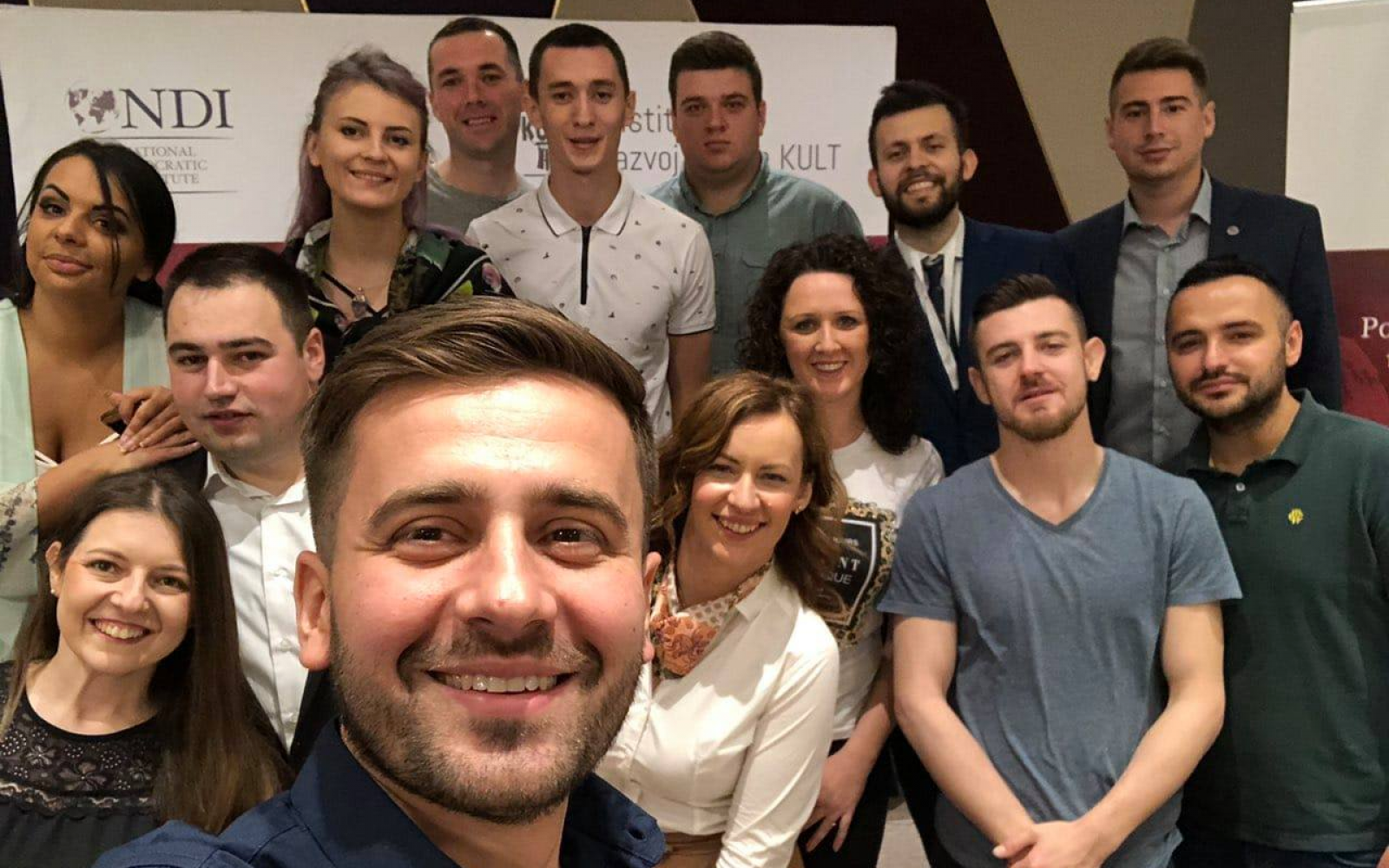
Group 9, a group of 20 young politicians from nine Bosnian political parties, taking a celebratory selfie with two NDI staff following a successful conference!
SHARE
Although official statistics on emigration do not exist, anecdotal evidence suggests that Bosnia-Herzegovina’s (BiH) population of roughly four million is plummeting, as thousands of citizens head elsewhere, with 64 percent citing the economy as the primary driver and 61 percent of people under 30 indicating that they have personally considered leaving BiH for better opportunities.
|
Short Term and Long Term Measures Proposed by Group 9
|
Nobody knows exactly how many young people have left BiH, but the feeling of absence is palpable. More than two decades after the Dayton Agreement ended the war, BiH’s democratic transition remains challenged by post-conflict grievances, corruption, and a lack of political pluralism among political parties. Recent NDI public opinion research revealed that 89 percent of citizens doubt the ability and the will of their representatives to work across ethnic lines to move the country toward membership in the European Union and increased foreign investment, which are seen as primary drivers of economic development, particularly among young people.
Over the past two years, a group of 20 young politicians from nine political parties, known as Group 9, have come together with NDI support to develop short- and long-term measures designed to spur business, encourage young entrepreneurs, and increase professional skills preparation in higher education.
These young people set aside ethnic and partisan differences to work together on common interests to combat the exodus of young, employable Bosnians. Their efforts culminated in a conference held in June 2019 that gathered more than 150 participants and experts from BiH, Croatia, North Macedonia, Romania, and Serbia to debut Group 9’s proposals, discuss the drivers of youth emigration, and explore possible solutions. Sefik Dzaferovic, the Bosniak member of the BiH Presidency and U.S. Ambassador Eric Nelson delivered opening remarks stressing the importance of investing in BiH’s youth.
In the sessions that followed, panelists discussed several shared gaps in information, the role of the diaspora, youth mobility opportunities within BiH, and the influence of European Union (EU) integration.
Many in the audience assumed that joining the EU would lead to higher rates of emigration, but MP Vesna Pusic, former deputy Prime Minister and former Minister of Foreign and European Affairs in Croatia, shared that Croatian policies had the opposite effect. She explained that, as a result of the economic benefits from EU membership, Croatia was able to create conditions in which many young people decided to stay.
One panel featured three young entrepreneurs who decided to stay in BiH where they shared their successes and challenges in starting businesses, giving Group 9 specific policy issues to address, and confirming Pusic’s assessment. A panelist stressed the importance of holding elected officials accountable as a small business owner who relies on the government working efficiently, noting that, “we as tax-payers must understand what our vote does – if we pay everything on time, they [government institutions] should do us the same courtesy.”
Group 9 has already begun leveraging the conference to encourage their fellow party members to take action. MPs representing several different political parties have made commitments to act on some of the Group’s ideas, including proposing a legislative initiative to gather much-needed data on youth emigration and reasons driving it; holding a committee hearing and/or plenary discussion on youth emigration; and collaborating going forward to develop a series of legislative proposals on youth employment.
To hear more about Group 9’s efforts in BiH, please follow them on Facebook and Twitter.


